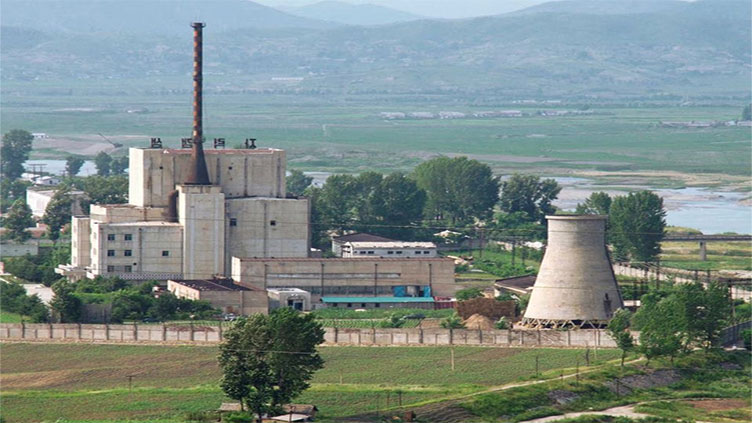North Korea halts nuclear reactor, likely to extract bomb fuel - report

World
North Korea has halted the nuclear reactor at its main atomic complex.
SEOUL (Reuters) - North Korea has halted the nuclear reactor at its main atomic complex, probably to extract plutonium that could be used for weapons by reprocessing spent fuel rods, a South Korean news report said on Thursday, citing a government source.
The operation of the 5 megawatt nuclear reactor at the Yongbyon nuclear complex has been suspended since late September, according to intelligence assessment by U.S. and South Korean authorities, the report said.
"South Korea and the U.S. believe this could be a sign of reprocessing work being done to obtain weapons-grade plutonium," the Donga Ilbo newspaper quoted a government source as saying.
Reprocessing of spent fuel rods removed from a nuclear reactor is a step taken before plutonium is extracted. The Yongbyon nuclear complex is the North's main source of plutonium that it likely has used to build nuclear weapons.
North Korea has also operated uranium enrichment facilities, which is a separate source of material that could be used for nuclear weapons.
"The possibility of a nuclear test by North Korea is not ruled out," Donga Ilbo quoted a senior government official as saying, without elaborating on what analysis pointed to the assessment the move may be related to a nuclear test.
South Korea's foreign ministry and defence ministry did not immediately have comment on the report.
North Korea has previously halted the operation of the reactor before restarting it and public confirmation of the purpose of such a move, whether it is for maintenance or for fuel extraction, is usually unavailable.
North Korea claims itself a nuclear state but has kept how many nuclear weapons it may have built or deployed a secret. Independent estimates of the North's plutonium range as high as 70 kg, which could be enough to build 20 or more weapons.
North Korea has conducted six underground nuclear tests and there have been concerns since last year that it may be about to conduct another test as part of a programme to develop miniaturised nuclear warheads.
North Korea's parliament adopted a constitutional amendment last week its policy on the use of nuclear force and leader Kim Jong Un has stepped up calls for the country to boost production of nuclear arms and to diversify its nuclear capabilities.

